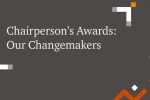Reusing wastewater to solve water crisis
09/20/16
- With a growing population, the per capita availability of water has dropped from 1,816 cubic metres in 2001 to 1,545 cubic metres in 2011.
- Only 70% of urban households have access to piped water supply.
- The average per capita supply to these households is well below the recommended 135 litres per day in many cities.
New Delhi: Water stress has become a perennial concern in most Indian cities. India is expected to add approximately 404 million new urban dwellers between 2015 and 2050. This rapid urban growth will be linked with higher industrial output and greater energy demand, thus adding to the urban water stress. Institutionalising the reuse of treated wastewater can help utilities in addressing this challenge in an effective manner.
There is a need for developing wastewater reuse as a sector, identifying the interventions that could help in the development of this sector and also identifying suitable structures that can help in mainstreaming the implementation of wastewater reuse projects in the country.
According to a PwC report – “Closing the water loop: Reuse of treated wastewater in urban India”, the situation warrants utilities and the government to ensure optimal use of available water resources while duly addressing the social, economic and commercial considerations.
Ranen Banerjee, Partner and Leader Public Sector and Governance, PwC said, “The wastewater sector will be driven by government initiatives based on which the implementation models will be designed. Hence, sound policy and regulatory interventions by the central and state governments are a prerequisite for the launching of innovative reuse projects. Government interventions will need to focus on incentivising the use of reclaimed water and developing institutional support mechanisms.”
To promote reuse, the central and state governments should jointly issue a national wastewater reuse policy with clear policy targets, setting out the legislative, regulatory and financial measures needed to achieve those targets.
Furthermore, the Ministry of Environment and Ministry of Water Resources should together define quality norms for different grades of industrial water which will help standardise design of reuse systems nationwide. National level norms for water safety planning and risk management are also needed to build credibility for reclaimed water as a reliable alternative.
There are three forces that are propelling the business case for reuse of treated wastewater in India.
- Water security: At present, this issue ranks high in the minds of policymakers in India with several cities facing water crises.
- Reuse of treated wastewater is getting strong support from government policy. It is an important element in the ambitious plan to clean up the River Ganga, a flagship initiative of the ruling government (Clean Ganga Mission), and is also included in other urban policies and their related funding streams.
- By signing the Paris Agreement on climate change in April 2016, India has signaled its concern for the sustainable use of natural resources. Water reuse fits well with these broader environmental goals, helping, as it does, to conserve scarce resources and to promote efficient use.
Given the worsening water crises in many Indian cities, the moment has come for the government to engage efforts and resources in developing wastewater reuse to meet industrial water demand. It may be a tough road ahead for utilities and government to fast-track the necessary interventions, but the long-term benefits of reusing wastewater are substantial.
About PwC
At PwC, our purpose is to build trust in society and solve important problems. We’re a network of firms in 157 countries with more than 208,000 people who are committed to delivering quality in assurance, advisory and tax services. Find out more and tell us what matters to you by visiting us at www.pwc.com.
In India, PwC has offices in these cities: Ahmedabad, Bengaluru, Chennai, Delhi NCR, Hyderabad, Kolkata, Mumbai and Pune. For more information about PwC India's service offerings, visit www.pwc.com/in
PwC refers to the PwC International network and/or one or more of its member firms, each of which is a separate, independent and distinct legal entity in separate lines of service. Please see www.pwc.com/structure for further details.
©2016 PwC. All rights reserved
Contact us

















